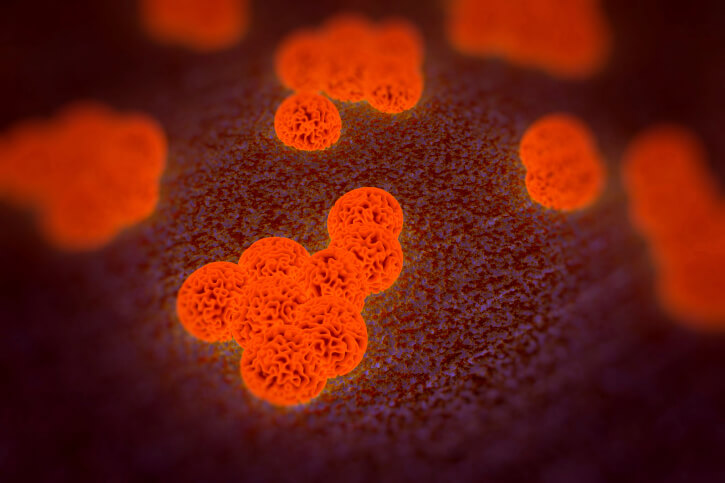
The Dangers of MRSA Bacteria
Methicillin-resistant staphylococcus aureus (MRSA) bacteria is a strain of common staph bacteria that has developed a resistance to antibiotics over the years, making it extremely difficult bacteria to kill. Often termed a “superbug,” MRSA kills more people than AIDS in the United States each year. Staphylococcus aureus is the bacteria that lives on the skin of all healthy humans and is relatively harmless in most cases. However, when these bacteria enter an open cut or wound, they can create an infection that can range from a mild skin irritation to a life-threatening problem that requires surgery. To safeguard yourself from MRSA bacteria, it can be helpful to know some of the dangers they pose and how to recognize an infection.
How MRSA Bacteria Cause Infections
MRSA bacteria cause severe infections by entering open cuts and wounds and often do not respond to antibiotic treatments. The United States Centers for Disease Control (CDC) shows that 25 percent of people hospitalized for staph infections have the MRSA bacteria. Unfortunately, even recently introduced antibiotics have been no match for the MRSA infection since it tends to become resistant to them within weeks of their release to the public. In hospitals, the bacteria may travel from patient to patient via medical equipment or the hands of healthcare workers. Outside hospitals, most people contract MRSA staph infections through skin-to-skin contact with an infected person or object. College students, athletes, prisoners, and military personal are at greater risk for infection because they live or work in close proximity to each other. In most cases, MRSA infections enter your body through a cut or opening in your skin and can appear to be a pimple or bug bite initially. However, after entering your bloodstream, the infection often spreads throughout your body and attacks the kidneys, lungs, and heart muscles.
Preventative Measures for MRSA Bacteria
While you can never protect yourself completely from MRSA, you can take measures to prevent the bacteria from entering your bloodstream. One simple but extremely useful way to prevent infection is to cover all open wounds, even those as small as a paper cut. You should also keep wounds that are draining or have pus covered with clean, dry bandages. Pus from infected wounds can contain MRSA bacteria, so keeping them covered can prevent you from spreading the infection to others. Additionally, you should wash hands thoroughly and use alcohol-based sanitizers when you are not near a bathroom. You should also avoid sharing personal items such as towels, sports equipment, razors, clothing, or anything else that has contacted another person.
MRSA bacteria can be both extremely contagious and dangerous if it enters your skin through an open wound or other skin lesion. Therefore, it is essential to take preventative measures to protect yourself from infection and to avoid infecting those around you if you have an existing staph infection. If you notice any sores that do not heal properly or become infected, you should contact a medical professional immediately.